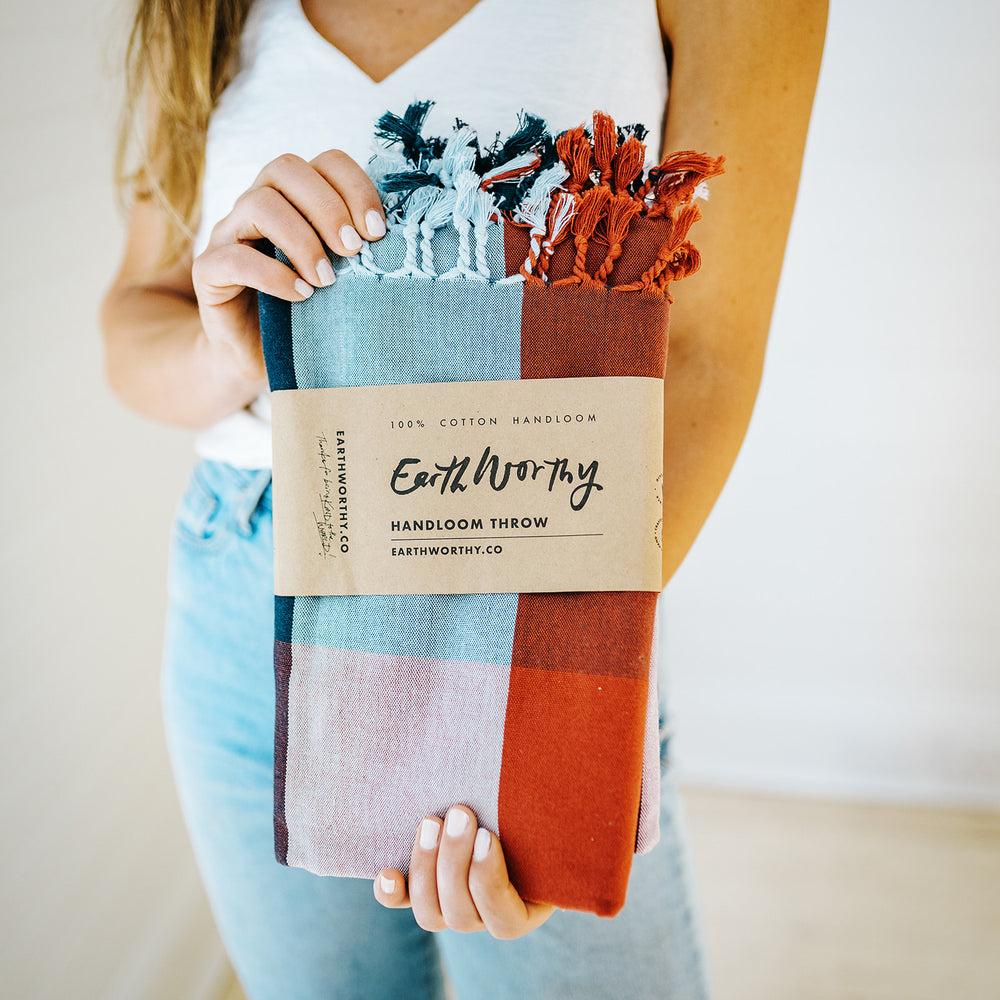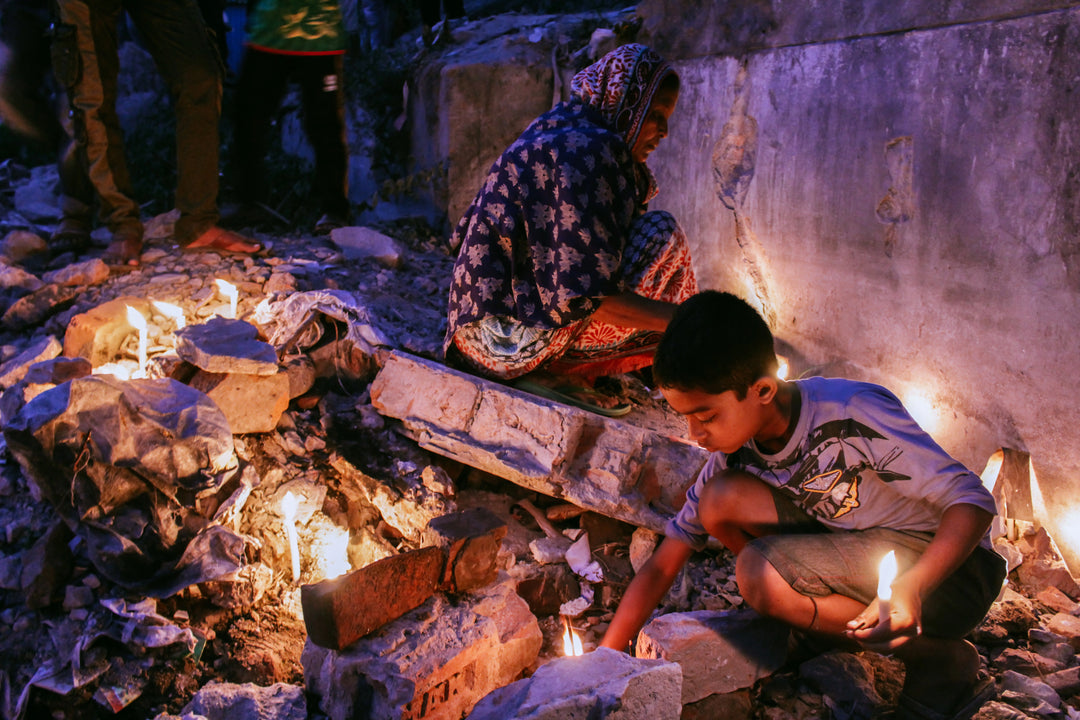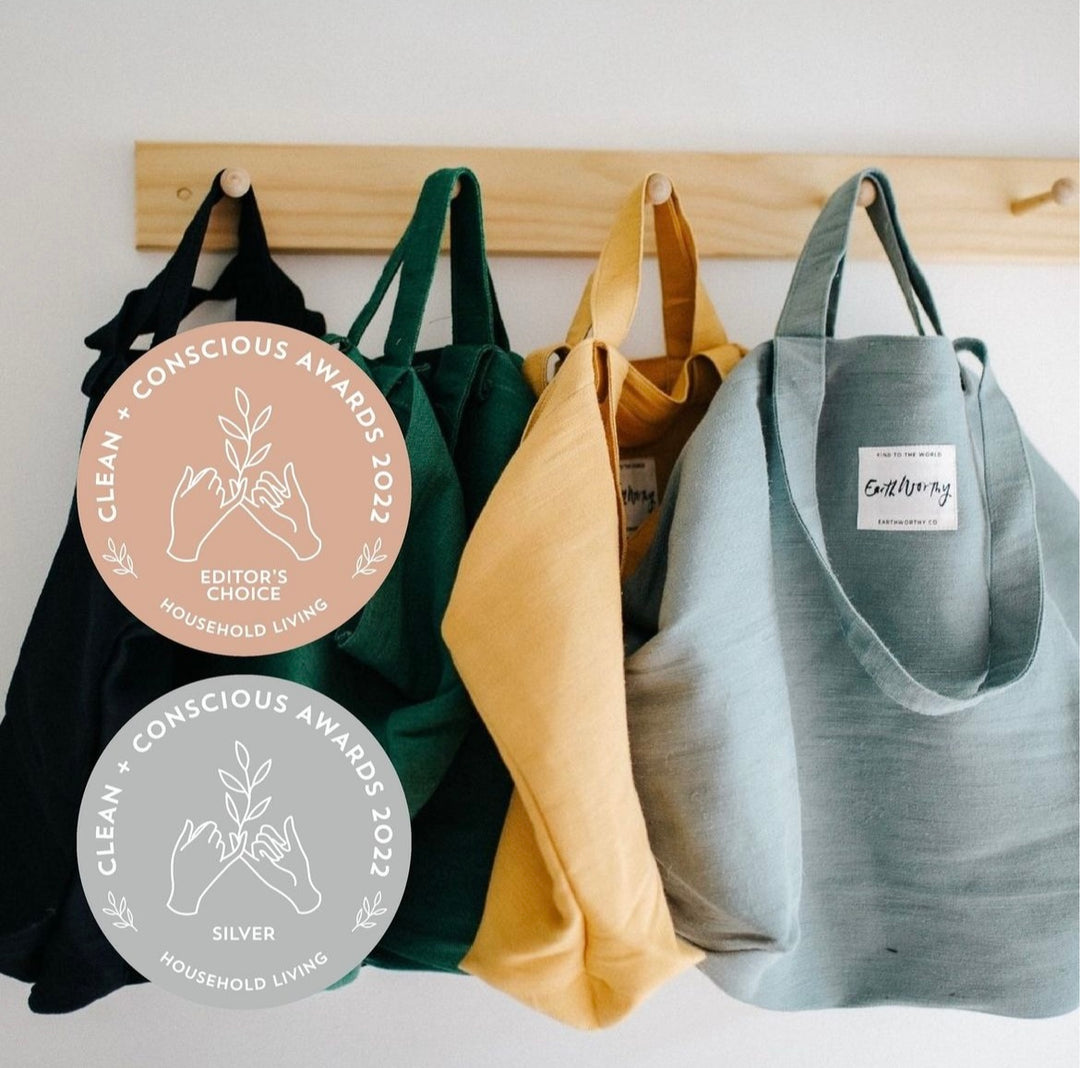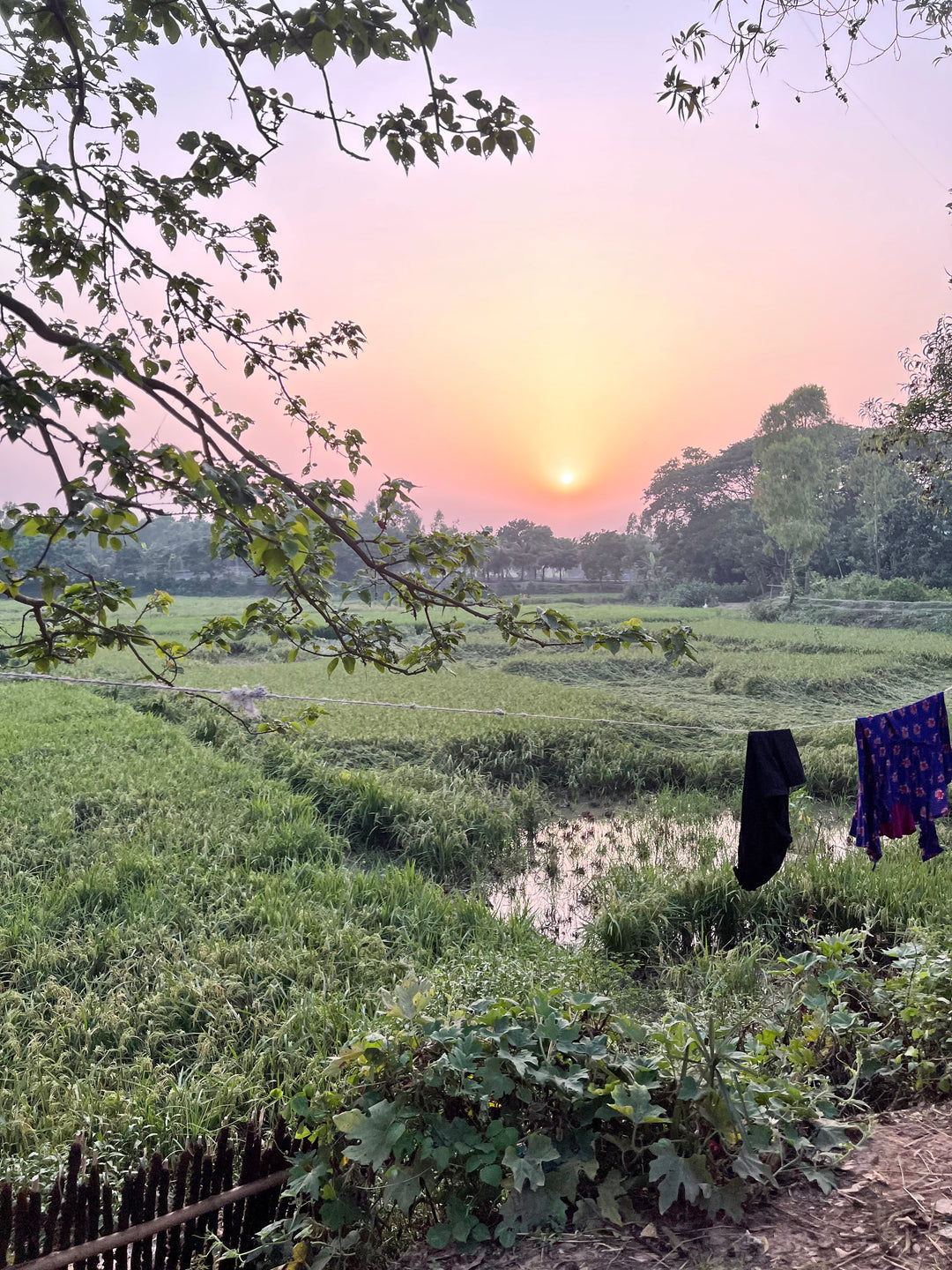Handloom Blankets: The Revival of Traditional Crafts and Why it Matters
A Family Business
In July 2019, Mr Shariatullah had a thriving business employing 18 artisans who worked in their home or locally in his production house. They used their traditional skills of weaving to create beautiful handloom pieces like blankets, table runners, napkins and tea towels. His multigenerational family business provided a safe and stable work environment and income. It allowed artisans to use their unique skills.

The Impact of COVID-19
Unfortunately, the pandemic saw orders dry up and leave Business Owners and Artisans without incomes, seeking loans from NGO’s or changing professions just to earn what they could. The handloom industry had already been struggling against the pressure of fast factory made which met demands for cheaper, quicker, printed products; but COVID stopped orders all together.
Mr. Shariatullah is concerned the traditional craft of Handloom may not recover.
It’s About the Crafts



When I moved back to Australia after living in Bangladesh, what I treasured most and took home with me was the local art and handmade pieces I had been lucky enough to collect. This included my very first handloom blanket that had been my bedding the whole time I was in there. So practical, so beautiful and I still have it 7 years later!
It’s about the craft, the skill, the story, the humans who earn their income and enjoy their work. There’s so much that goes into these pieces and there are villages and communities who sit behind them.
When you see a finished piece, there’s a huge process that has gone into it, including creating the design, converting the cotton into yarn, dying the yarn, preparing the yarn for the loom (which is quite a process) and the actual weaving of the blanket, towel or pillow case.
All by hand, by Artisans who have honed their skills for years to do what they do so beautifully.
Family Friendly Employment

The craft is important, and even more so, are the lives of the families involved and the life they can live as an artisan and not a factory worker. The difference between the life of a local artisan and a factory worker is stark. Artisan weavers work locally in their community (often in their home) and live with their family in regional and rural Bangladesh. Factory workers must move to the city, often living in dorms and sending money home to their family who they see sparingly.
When we value the way a product is made and the care that goes into making it we value the lives and dignity of the people involved as well.
Thank you for valuing handmade!

Thanks to each and every one of you who have seen the value of handmade. Earth Worthy has placed our second blanket order (twice as big as the first) and Mr. Shariatullah has been able to provide work for 14 artisans! We hope to share these beautiful pieces soon – they arrive in November! (but if you were paying attention to the looms in these photos you will see some of our designs coming to life.)
We’re really stoked to be part of sharing the stories of Makers in Bangladesh who use their hands to make our pieces and remind us all that buying ethically made, slow pieces does have an actual impact on the people who make them, on their families, on communities and actually on our future.
And most excitingly is that we are seeing a revival of the crafts here in Australia. We are learning to value what we have, be thoughtful about purchases and that less is more. We will do our best to keep sharing these personal stories. We are so incredibly thankful that we can have direct contact with our makers and while we can’t currently travel to Bangladesh we have the technology to stay connected.
Make sure you are subscribed to our e-news to keep hearing these local stories and to see the first pics of the incredible handloom blankets that are coming to life. They will make an incredibly special Christmas Gift and are the perfect Summer bedding.





